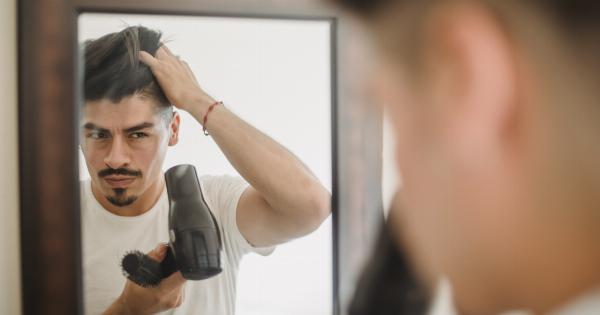Hair loss is a common concern that affects many individuals, both men and women, across the world. While we often associate hair loss with genetics, aging, and hormonal imbalances, there are several lesser-known factors that contribute to this issue.
Understanding these often overlooked causes can help in identifying the underlying reasons for hair loss and exploring appropriate treatments. In this article, we delve into some of the factors that you may not have heard of when it comes to hair loss.
1. Diet and Nutritional Deficiencies
The food we consume plays a vital role in the health of our hair. Inadequate intake of essential nutrients, such as vitamins, minerals, and proteins, can lead to hair thinning and loss.
Deficiencies in vitamins D, B vitamins (especially biotin), zinc, iron, and protein have been linked to hair loss. To promote healthy hair growth, it is important to maintain a well-balanced diet that includes these vital nutrients.
2. Stress and Anxiety
Chronic stress and anxiety can wreak havoc on our overall well-being, including our hair health.
Increased levels of stress hormones in the body can disrupt hair growth cycles, leading to telogen effluvium, a condition in which a significant amount of hair enters the resting phase and eventually falls out. Managing stress through relaxation techniques, therapy, and lifestyle changes can help mitigate hair loss caused by stress.
3. Medications
Various medications, both over-the-counter and prescription drugs, can have hair loss as a side effect. Some common medications include antidepressants, blood thinners, anticonvulsants, and chemotherapy drugs.
If you are experiencing hair loss and are on any medication, it is advisable to consult with your healthcare provider to explore alternative options or mitigate the side effects.
4. Hairstyling Practices
While certain hairstyles can enhance our appearance, some hairstyling practices can lead to hair loss.
Excessive use of heating tools like hair dryers, straighteners, and curlers, as well as tight hairstyles (such as ponytails, braids, or buns) that pull on the hair, can cause damage to the hair follicles and lead to breakage and hair loss. Opting for heat protectants, avoiding over-styling, and opting for looser hairstyles can help prevent unnecessary hair loss.
5. Environmental Factors
Our hair is constantly exposed to various environmental factors that can contribute to hair loss. Air pollution, exposure to harmful chemicals, and ultraviolet (UV) radiation from the sun can damage the hair shaft and weaken the follicles.
Protecting your hair by wearing a hat or scarf outdoors, using hair products with UV protectants, and opting for a gentle cleansing routine can help counteract the negative effects of environmental factors on your hair health.
6. Hormonal Imbalances
While hormonal imbalances are commonly known to cause hair loss, there are specific lesser-known hormonal influences that can contribute to this issue.
For instance, imbalances in thyroid hormones, particularly hypothyroidism (underactive thyroid), can lead to hair loss. Additionally, fluctuations in female hormones, such as during pregnancy or menopause, can also contribute to hair thinning.
Consulting with a healthcare professional and addressing hormonal imbalances can help manage hair loss caused by hormonal factors.
7. Autoimmune Conditions
Autoimmune conditions, such as alopecia areata, can result in hair loss. In these conditions, the immune system mistakenly attacks the hair follicles, leading to hair loss in patches.
Addressing the underlying autoimmune condition through appropriate medical interventions can help manage hair loss and promote hair regrowth.
8. Overactive Immune System
Besides autoimmune conditions, an overactive immune system can also play a role in hair loss. Chronic inflammation, caused by an overactive immune system, can damage hair follicles and hinder healthy hair growth.
Taking measures to boost the immune system, such as consuming a nutrient-rich diet, regular exercise, and managing stress, can help maintain a balanced immune response and reduce the risk of hair loss.
9. Chronic Illnesses and Infections
Chronic illnesses and infections can significantly impact hair health and lead to hair loss. Conditions like lupus, diabetes, and certain scalp infections can disrupt the normal hair growth cycle and cause hair loss.
Proper management and treatment of underlying health conditions is crucial in preventing and addressing hair loss associated with chronic illnesses.
10. Genetic Factors
While often mentioned, genetic factors still remain one of the leading causes of hair loss. Male and female pattern baldness, known as androgenetic alopecia, is primarily influenced by genetic factors.
Understanding your family history of hair loss can help predict your susceptibility and take preventive measures to manage or slow down the progression.
It is important to note that these factors may not be the sole causes of hair loss but can contribute to the problem.
Hair loss can have a complex interplay of various underlying factors, and seeking professional advice is crucial in determining the exact cause and appropriate treatment.























